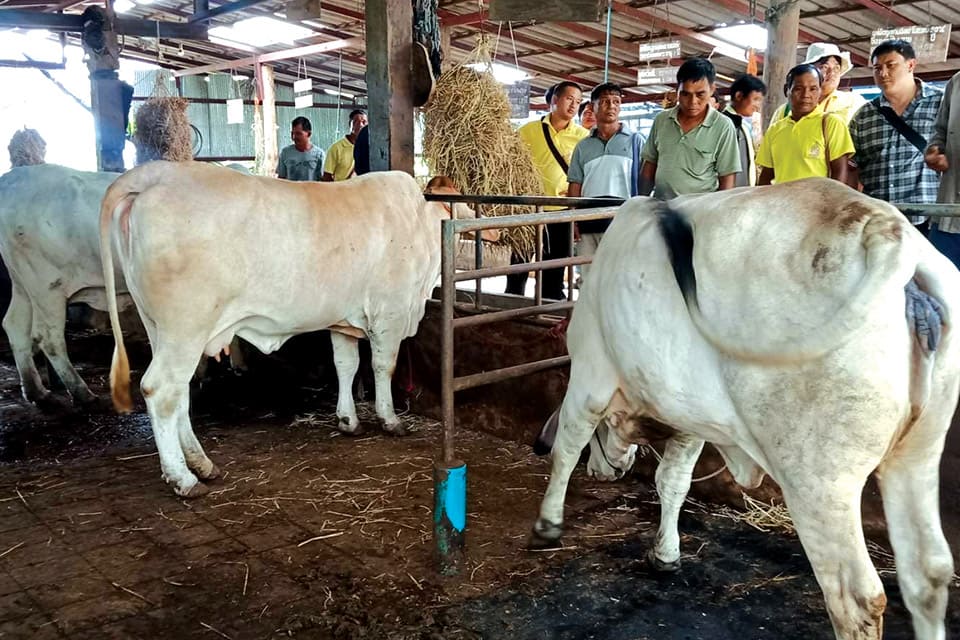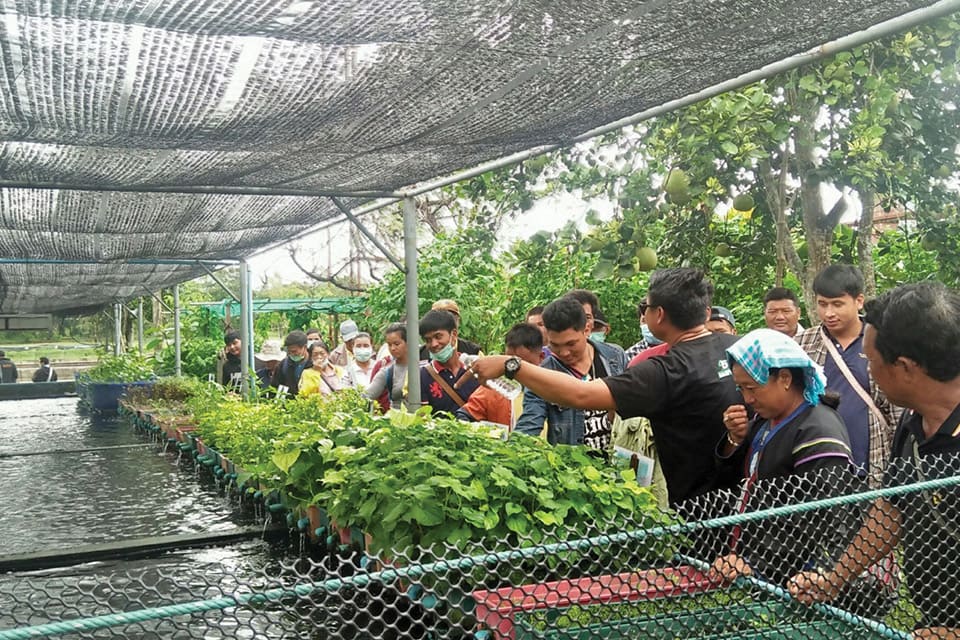Animal Development Activities
3.1: Establishment of Animal Medicine Fund and Veterinary Services
The Mae Fa Luang Foundation has sent four local residents from the project area to participate in training courses on animal care and veterinary practices at the Phu Pan Development Education Center in Sakon Nakhon Province. The aim of this training is to equip the participants with skills to take care of the health of animals in the project area, with the objective of reducing animal mortality rates. This, in turn, helps to decrease expenses, create additional income, and increase assets for the community. Furthermore, the training lays the groundwork for future animal development initiatives in the area.
After the four volunteer animal caregivers received training in basic animal health care, the project established the Animal Medicine Fund. This fund provides the project’s veterinary team with high-quality medicines and the necessary equipment to provide continuous healthcare services for animals in various villages. The team offers vaccinations and treatment for sick animals in the area, collecting service fees from the animal owners and accumulating the funds for future medication purchases. The project also provides guidance on proper animal care and improving animal living conditions. So far, the project has provided animal healthcare services to a total of 2,330 animals.
The provision of animal healthcare services throughout the year has led to a significant reduction in animal mortality rates across all types of animals. Moreover, the initiative has raised awareness among the villagers about the importance of caring for their livestock. As a result, the cost of animal losses in 2561 decreased from 4,965,754 baht in 2017 to 3,015,990 baht, representing a decrease of 39 percent.
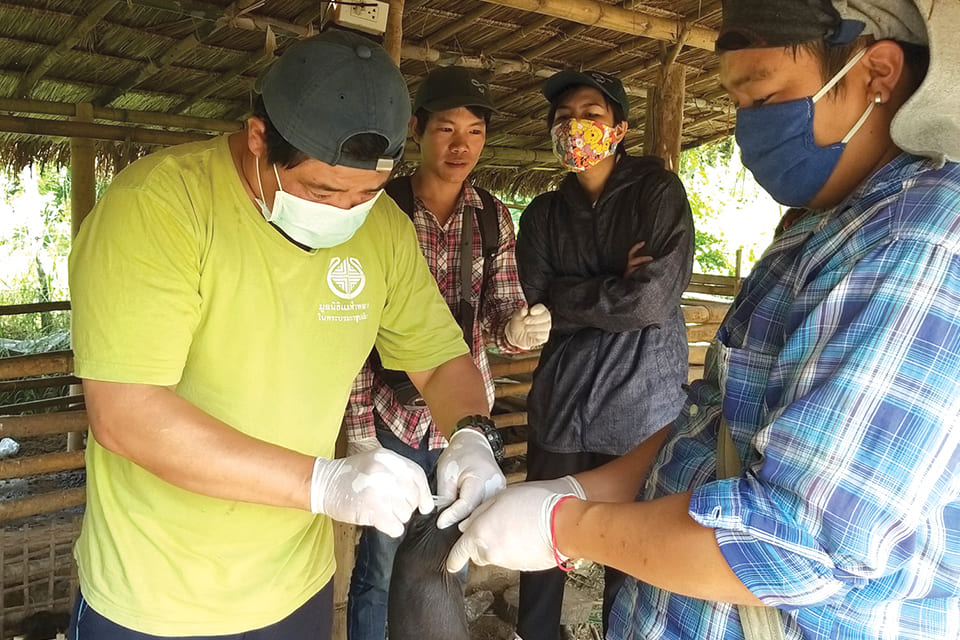
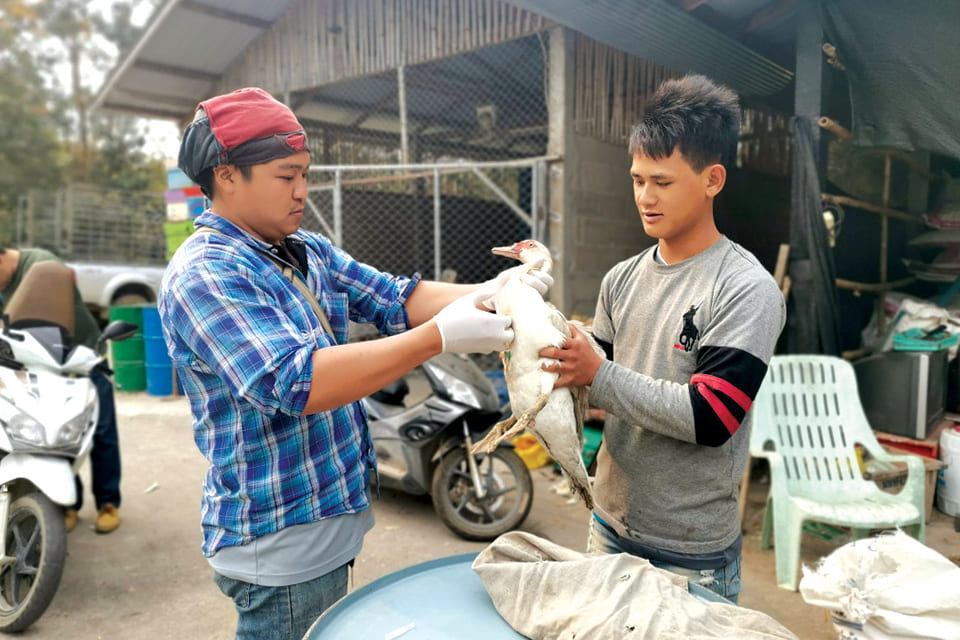
vaccinate pigs and ducks
3.2 Animal Funds
With sufficient personnel and high-quality medicines for animal health care in the area, the project plans to increase the number of animals in the area to serve as a source of food and additional income for households, promoting food security and additional income for the community. To achieve this, the project has established various animal funds, including funds for pigs, chickens, ducks (for eggs and meat), and fish. The purpose is to support livestock breeding and expansion systematically.
Apart from general criteria for assessing the readiness of recipients to receive animals, such as having suitable facilities and the ability to care for the animals, the funds specify the requirement for animal recipients to return certain offspring to the project under specific conditions. For instance, those receiving piglets must return three female piglets for each sow received, while those receiving male piglets must return one female piglet for each male breeding pig received. Similarly, the fund requires the return of one offspring for each duck received. The purpose of this policy is to provide breeding animals to other villagers in the future.
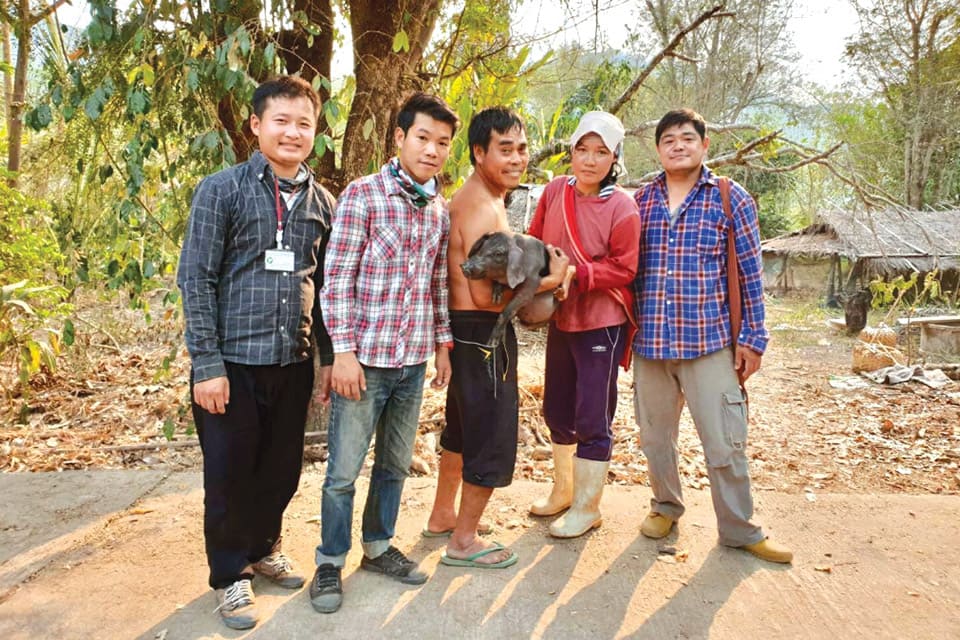
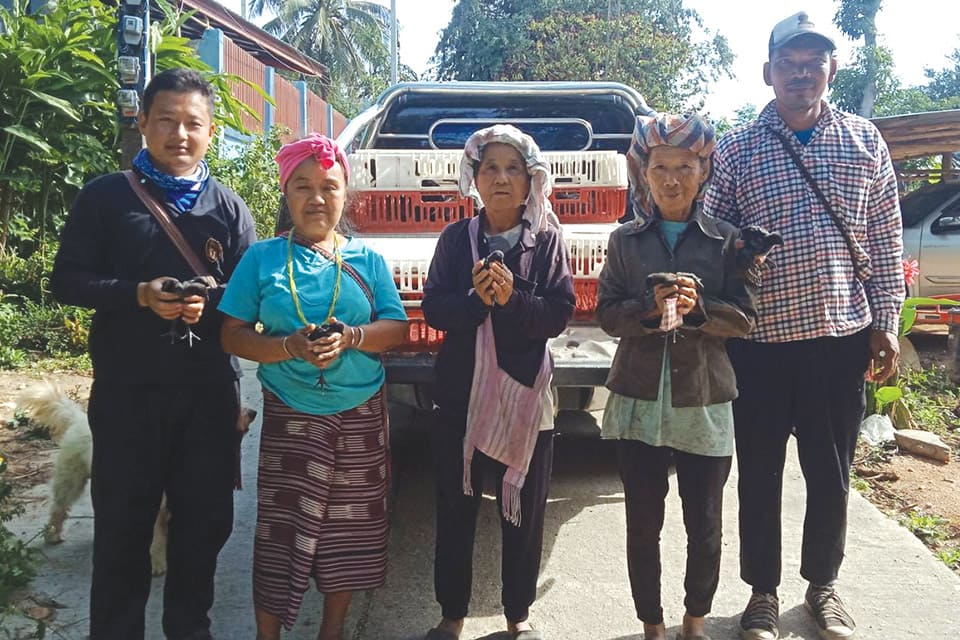
Delivering pigs and chickens to villagers
Since the establishment of animal funds, the project has supported a total of 285 pigs, 2,691 chickens, 612 ducks (for eggs), and 916 ducks (for meat). Some of these animals are offspring from breeding pairs provided by the project in the past and returned according to the fund’s conditions. Additionally, in collaboration with the Mae Ai District Fishery Office, the project has supported fish breeding by providing 10,000 tilapia fish and 26,000 tilapia to 68 villagers who dug fish ponds and showed interest in fish farming, promoting food security and providing additional income for the community.
3.3 Animal Feed Quality Improvement
In addition to animal health, food is a crucial factor that affects the quality of livestock and is a major cost in animal farming. Therefore, the project promotes the use of fermented bananas as animal feed, which utilizes local resources and helps reduce the cost of animal feed. Furthermore, the project encourages the cultivation of Napier grass and banana plants to produce low-cost animal feed. This has been implemented across a total area of 87 rai (approximately 35 acres).
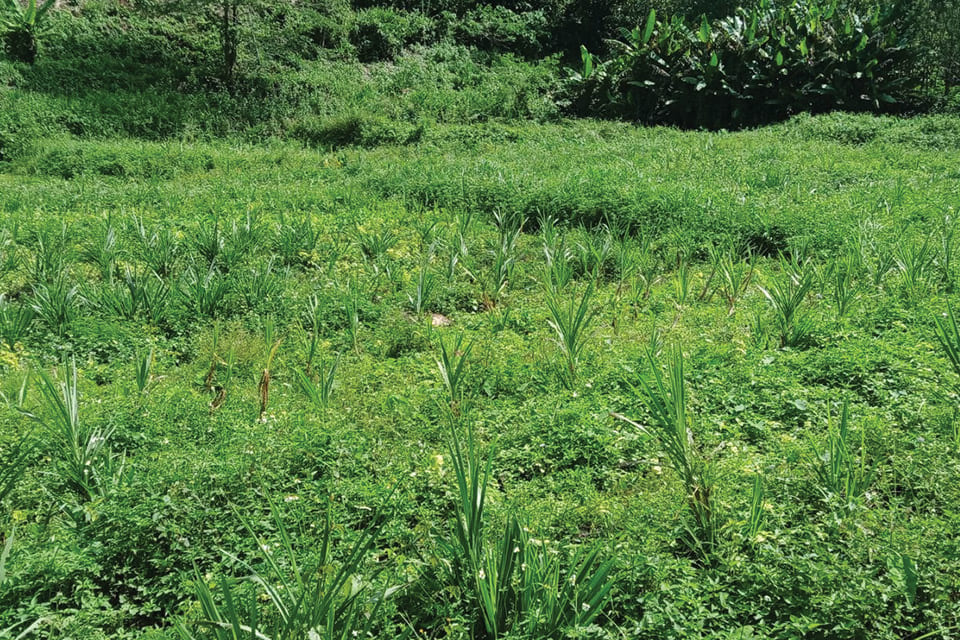
Napier Grass Plot
3.4 Support for Greenhouse Building Materials
To create opportunities for economically disadvantaged individuals to start income-generating occupations in a sustainable manner, the project has established a fund to support the construction of animal shelters. This fund aims to support economically disadvantaged individuals in building and improving animal shelters, meeting the criteria for animal breed consideration. The project supports the recipients with various construction materials under the condition that, when they generate income from selling animals, they must return the equivalent value of the supported materials to the project. This repayment serves as a revolving fund to support other economically disadvantaged individuals in the future. The project has provided greenhouse building materials to 50 beneficiaries.
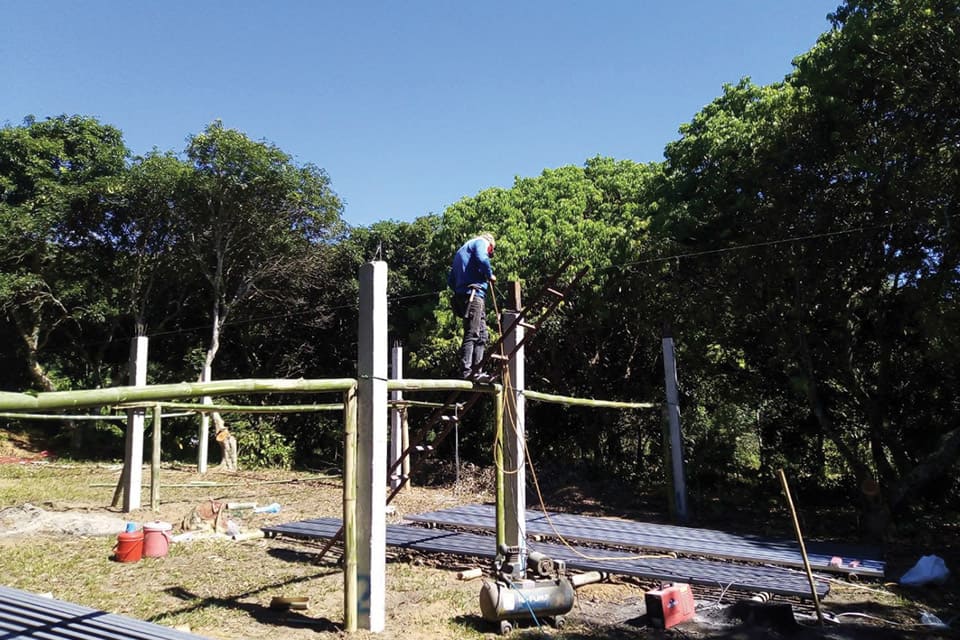
Support materials for building a fattening pig house
3.5 Youth Activity: Chicken Raising to Reduce Household Expenses
The project initiated a training activity for rural youth to raise chickens. Fifty students from the schools, Thotsadej Samutprakan School 3 and Ban Sukharit School, were provided with knowledge about raising chickens, vaccination, and caring for ten chickens each at their homes for three months. Their parents and teachers accompanied and evaluated the results while distributing recording books to monitor the chickens’ growth. This activity aimed to provide practical chicken raising skills to the students, reduce chicken mortality rates in the area, and foster student participation in the development activities of the project.
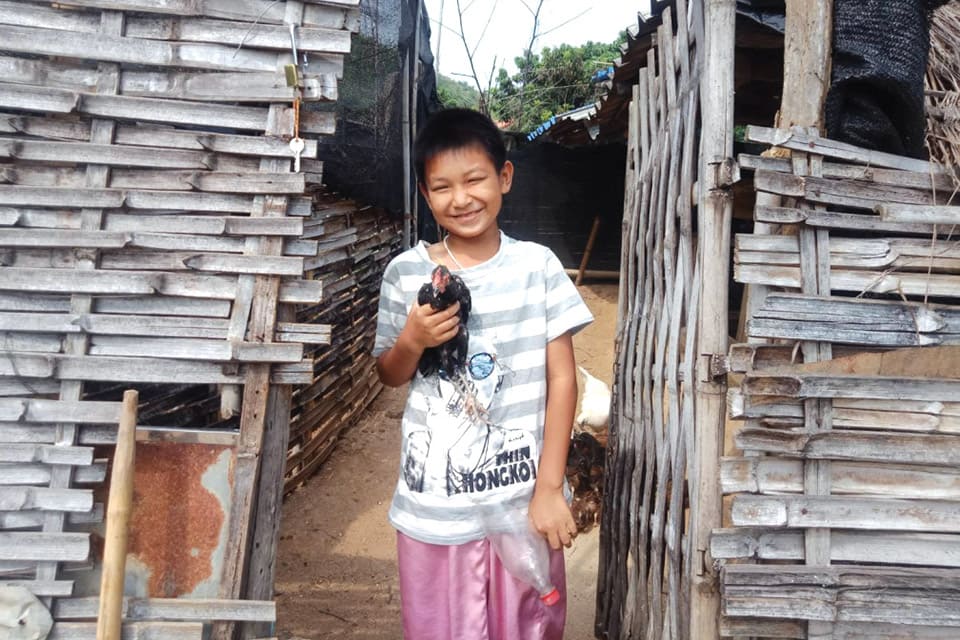
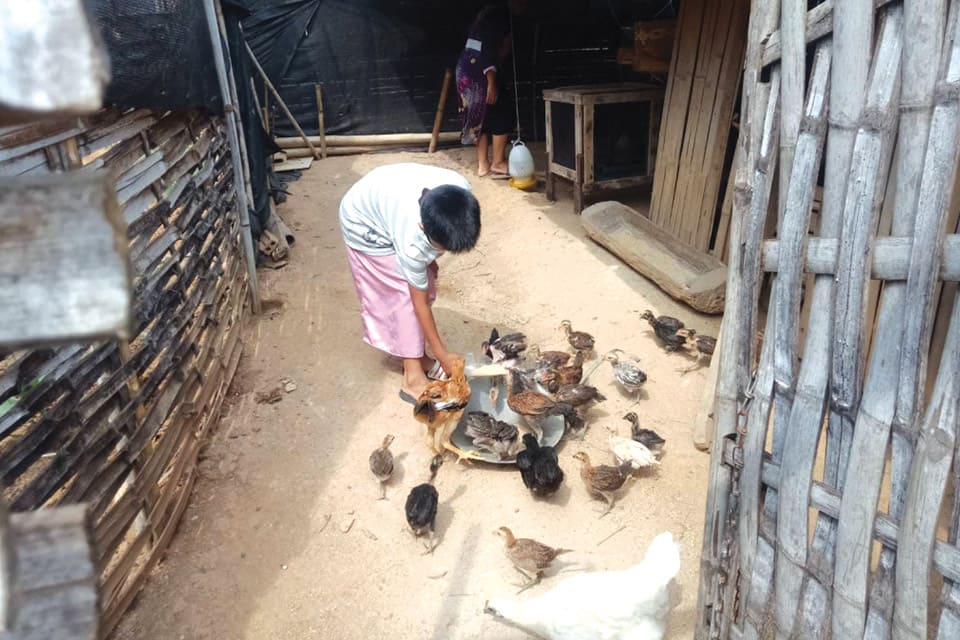
Youth activity raising chickens
After the three-month period, 35 students successfully met the criteria for chicken raising1. The project continued to conduct similar activities with economically disadvantaged students based on survey data. It aimed to gain understanding, inquire about participation, and evaluate the needs for chicken raising activities. Based on this, the project provided chicken breeds to economically disadvantaged students who demonstrated potential in raising chickens but lacked their own chickens. The project supported 62 chickens for 21 economically disadvantaged students to enhance their vocational skills and increase family income in the long term.
3.6 Animal Study Tours and Training
The project has organized study tours and provided training on animal husbandry to the staff and animal teams of the project and the villagers in the “Roi Jai Rak” project. The aim is to enhance understanding of adding value to animals in the area and processing products from animals to increase their value. These activities have been conducted three times as follows:
Training on processing products from ducks on August 27, 2562, at the “Roi Jai Rak” project.
Study tour on cattle farming and processing on August 29, 2562, at the Lanna Cattle Community Enterprise Network in Chiang Rai province.
- Study tour on fishery on August 3, 2563, at the Research and Development Center for Freshwater Aquaculture, Zone 2, Chiang Rai province.
